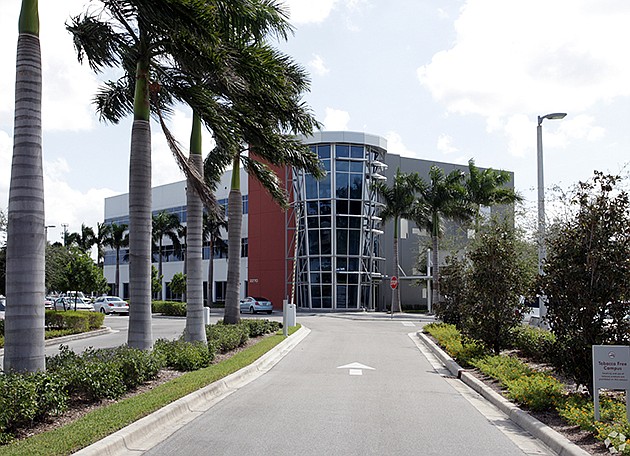- November 25, 2024
-
-
Loading

Loading

Medical office buildings have become the darlings of specialized real estate investment trusts, private equity groups and individual investors — especially in Florida — because they tend to provide stable, long-term income streams with credit-worthy tenants.
“It's a very hot sector for alternative real estate investment,” says Jim Costello, a senior vice president of Real Capital Analytics, a real estate data and research firm. “Prices are continuing to go up. In the first quarter of this year versus 2014, sales activity is up 135%.”
In Florida, Tampa-based Carter Validus Mission Critical REIT Inc.'s $117 million purchase of a portfolio of nearly two dozen medical buildings in five states in late April illustrates the national trend.
The buildings, comprising 224,150 square feet and master leased to cancer care provider 21st Century Oncology, were owned by a series of partnerships comprising the practice's physicians and executives, including founder and CEO Dr. Daniel Dosoretz, records show.
Along the Gulf Coast, Carter Validus bought a half dozen properties owned by the physicians, including the company's three-story Fort Myers headquarters, a radiation office in Lakewood Ranch, an office in Bradenton, and a trio of others in Lee and Collier counties.
“We initially brought the buyer to the table two years ago based on what we saw as the market at the time, future demand for medical-related office space and sector fundamentals,” says Gino Lollio, a Marcus & Millichap associate vice president who represented Carter Validus in the transaction together with Scott Niedergang, also of the brokerage firm. “It was a portfolio that was built and consolidated over time, part of a strategy these investors had, and that enhanced the attractiveness to the buyer.”
As part of the sale, 21st Century Oncology affiliates signed a new, 13-year master lease for the properties.
“The quality of the tenant, the substantial remaining lease duration at purchase and the prime health care markets in which the 21st C portfolio facilities are located all make this group of investments valuable,” says Michael Seton, the REIT's president.
21st Century Oncology's financial performance and size — at 181 treatment centers in the U.S. and Latin America the company is the largest physician-led cancer care provider — helped, as well. Last year, 21st Century Oncology generated $1 billion in revenue, a 22.5% gain over 2013.
But at least part of the allure stemmed from heightened competition among buyers.
“There's a relative lack of supply, and interest rates are still attractive,” says Niedergang. “Sellers are in a prime position to take advantage, because as a product type, medical office is as strong as any out there right now.”
That's been the case for the past four years. Since 2012, more than $17 billion worth of medical office space has been sold nationwide, according to Real Capital Analytics data.
Roxanne Kemph, a first vice president with brokerage firm CBRE, says medical office is attractive to investors because tenants tend to stay put.
“Medical users typically have specialized equipment and a customer base that wants to know where they are,” she says. “And since they're often near hospitals, they want to stay there.”
But Ken Hughes, founder of CNK Realty, a Bradenton brokerage that focuses on medical offices, says capital and a lack of supply is driving many of the deals.
And the trend shows little sign of waning, as only 15 million square feet worth of new buildings have come online since 2011, compared with 41 million square feet in 2008 and 2009.
“We see the continued intense interest in health care properties persisting in 2015 as institutional, REIT and private equity buyers compete for precious little new investment property,” brokerage firm JLL wrote in a recent report.
- K.L. McQuaid